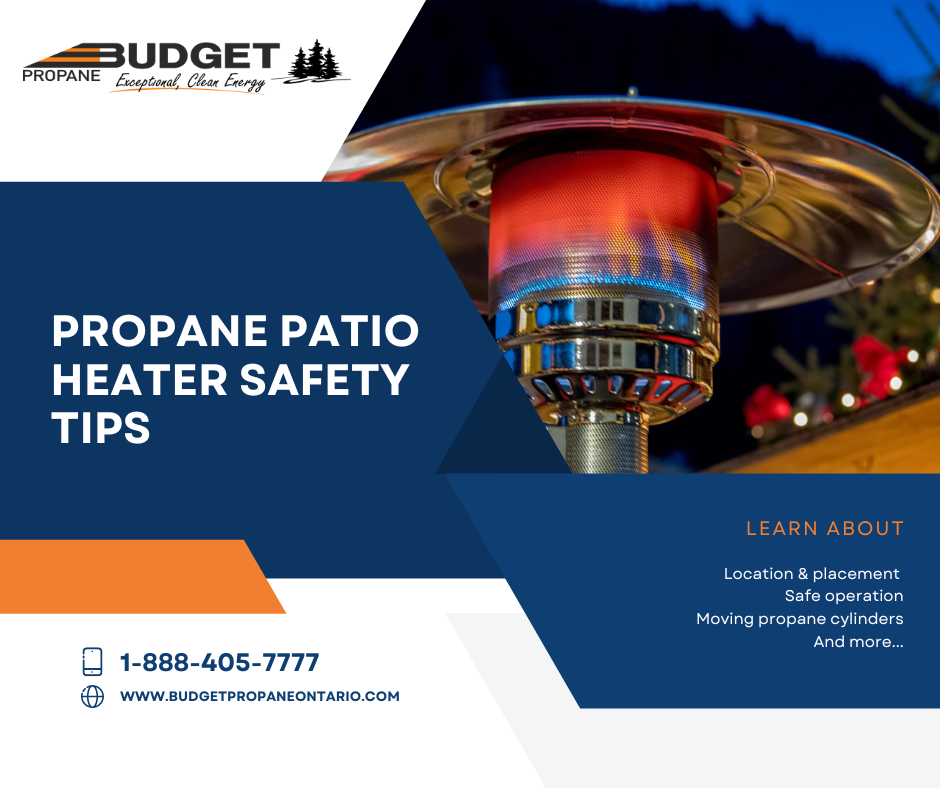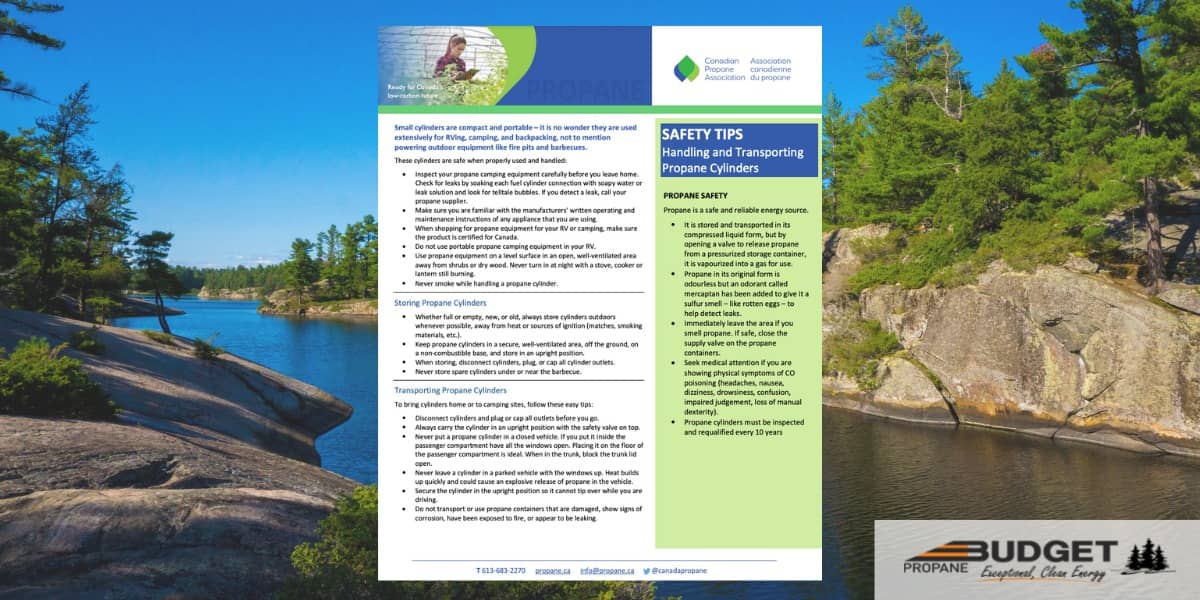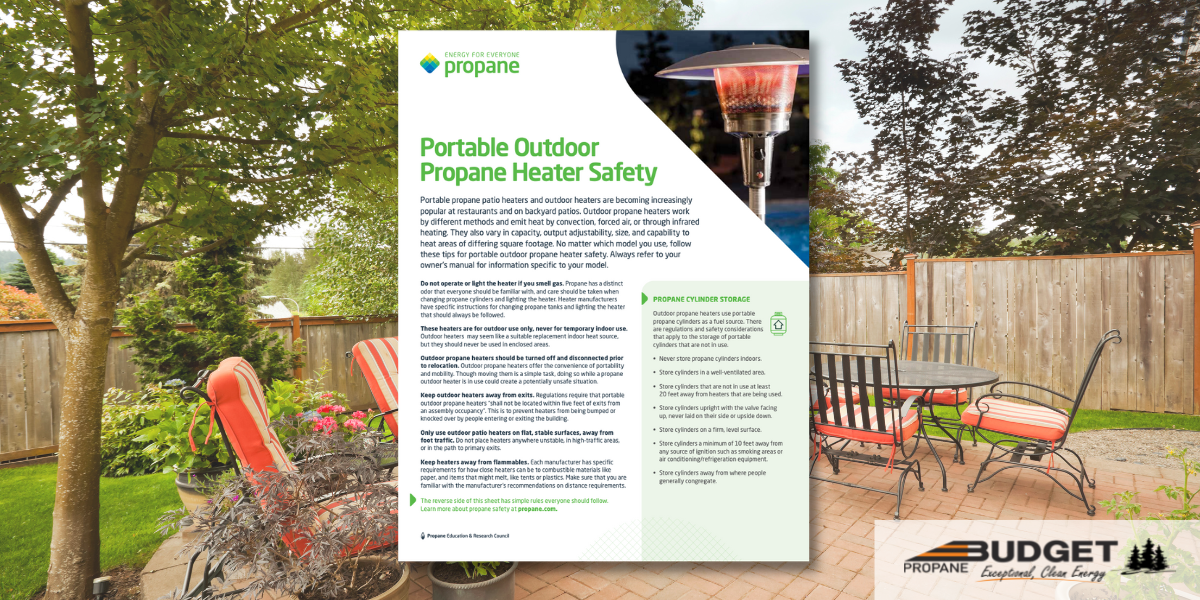
Propane patio heaters are a popular addition to outdoor living spaces to help extend their use into winter. And it's not just hotels and restaurants that are making use of these appliances - many home and cottage owners are also using them.
It's important to have a patio heater or open flame appliance placed in a safe location and to be aware of all safety considerations.
The Canadian Propane Association has provided the following safety tips and we'd like to share them with you.
"Use Patio Heaters Outside Only
- Propane cylinders should never be stored indoors.
- Cylinders must be stored upright and safeguarded with protection that is tamper-proof and could withstand vehicle impact, such as a locked cage or fenced-in area.
- If you need to store your patio heater indoors for security reasons, remove the propane cylinder first.
Look Up and Around
- Install the heaters according to the manufacturers’ instructions regarding ceiling height clearance and proper distancing from any fire hazards, building openings or mechanical air intakes.
- Fire hazards can be located around, above, or underneath heating units and can include combustible materials such as umbrellas, awnings, tent walls, tablecloths, paper products, decorations, etc.
- Do not position patio heaters next to or in the path of an exit, including fire escapes. Do not obstruct firefighting equipment such as fire hydrants and fire department connections.
- Do make sure that propane cylinders are not stored near operating heaters or smoking areas. A cylinder is in storage when not connected to an appliance
Keep Them Stable
- Make sure heaters are on a stable surface so they do not get knocked over.
- Do not install heaters on grass or an uneven sidewalk, or near the edge of an elevated platform.
- Make sure all free-standing units have an anti-tilt feature.
Move Them with Care
Never move portable heaters while the flame is lit. Make sure the propane supply is properly shut off and the unit cool before relocating.
Use caution when moving propane cylinders to avoid dropping or impact.
Make sure heaters are on a stable surface so they do not get knocked over.
Safely Transport Cylinders
Disconnect cylinders and plug or cap all outlets before you go.
Never leave a cylinder in a parked vehicle with the windows up. Heat builds up quickly and could cause an explosive release of propane in the vehicle.
Always carry the cylinder in an upright position with the safety valve on top.
Do not transport cylinders in an enclosed space.
Open windows, a propped open trunk, or a ventilated truck box are safe ways to transport a cylinder.
Secure the cylinder in the upright position so it cannot tip over while you are driving.
Do not transport or use propane containers that are damaged, show signs of corrosion, have been exposed to fire, or appear to be leaking."
source: The Canadian Propane Association
Here's a link to download a copy of the CPA's safety tips bulletin.
If you'd like more information about using propane at your home, cottage or business in central Ontario, give Budget Propane a call at 1-888-405-7777. Budget Propane is a locally owned and operated propane supplier with a strong commitment to customer service. Contact us for a no obligation quote.




